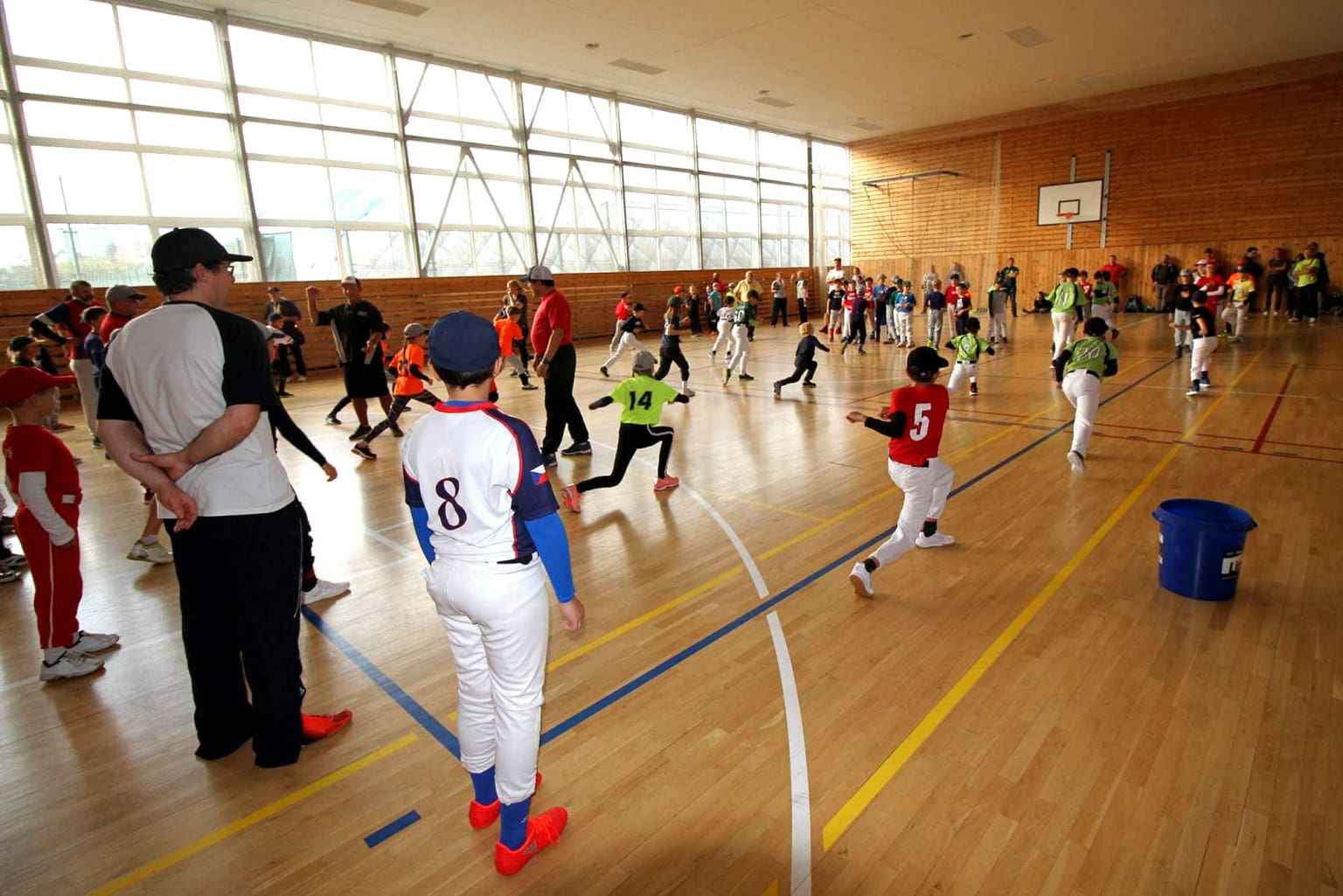Three Ways to Train in the Great Indoors

Most parts of the country are into the depths of winter, meaning scant chance for outdoor baseball and softball training. But don’t despair; you have plenty of opportunity to train both body and mind in the great indoors. Here are three places to focus.
General strength, cardio, and flexibility:
Offseason is a great time to improve overall conditioning. If players have access to a gym, there is no end to their options. But even at home, consider these basic moves: burpees, push-ups, sit-ups, pull-ups, squats, mountain climbers, toe raises, and jumping jacks.
With a little equipment, players can jump rope, run rope ladder drills, lift dumbbells, use hand grips or stress ball squeezes, and do trunk-twisters with a medicine ball. All of these exercises contribute in one way or another to baseball/softball-specific motions and overall athletic explosiveness.
The discipline it takes for players to put themselves through this work also has a mental and emotional payoff. Stepping onto the field next spring knowing how hard they’ve worked is an instant confidence-booster and imparts the idea that they have earned the right to succeed.
Sport-specific drills:
Access to batting cages is a huge help. A school gym with enough room to play catch, set up base-running scenarios or field fun is also a big advantage.
But, again, even at home, players with a bit of room and equipment can hit whiffle balls off tees, practice pitching motions in front of a mirror, work on stances and swings with a bat and a tennis ball strung from a beam, and sharpen reflexes with a reaction ball bounced off a wall.
Mental training:
As important as it is to maintain or improve physical conditioning and skills during the winter, it may be even more important to exercise mentally. There are thousands of situations to consider, combining score, inning, runners-on-base, pitching-hitting match-ups, and a player’s position in the field.
Players who love their sport and miss it during the offseason may want to indulge deeply in thinking the game. That can have untold benefits when play resumes next season, reduces the learning curve for players and has them moving confidently and spontaneously in practices and games.
The best time for players to train mentally may be while stretching before and after their physical training. Many people find stretching boring and neglect this critical element of conditioning. However, most young players can hold, say, a hamstring or quad stretch for the prescribed 30 seconds while their minds picture a base-running scenario and fantasize sprinting around the bases with blazing speed, thanks to all of their offseason preparation in the great indoors.
Additional free resources from PCA are available at www.PCADevZone.org. For more ideas on getting the most out of your players while teaching life lessons, take the full-length Little League Double-Goal® Coach Course.
By David Jacobson, Positive Coaching Alliance
NOTES TO MANAGERS AND COACHES: If you are beginning practices, or winter workouts in January, be sure to check with your league’s Board of Directors to verify the league has proper insurance coverage in effect for their players and teams before the start of these type of league activities.
- Completion of the Little League charter application and insurance enrollment process, as well as payment in full for all insurance premiums prior to the end of each calendar year, ensures that a league, or district, does not have a break in insurance coverage.
- It is important to note that without any insurance coverage in effect, a league, or district, and its officials, including Managers and Coaches, will not be covered for any eligible Little League-related activities. Liability (General Liability, Directors and Officers, Cyber), Crime, and Accident Insurance will not be in force for the current season until the league or district has chartered and paid its premiums in full.
- Leagues and District Administrators who have not chartered, applied for their insurance and PAID IN FULL all insurance premiums are at great risk from liability claims. Claims can occur from people being injured on the property used for baseball/softball activities in the off-season to simply someone falling on the property. Also, registration, league meetings, or any other activities away from the actual playing field are another source of risk. Example — If a league applies for the insurance coverage on January 15th, but does not pay until March 15th, the league does not have any insurance in effect until March 15th of the current year when the premiums are paid in full.